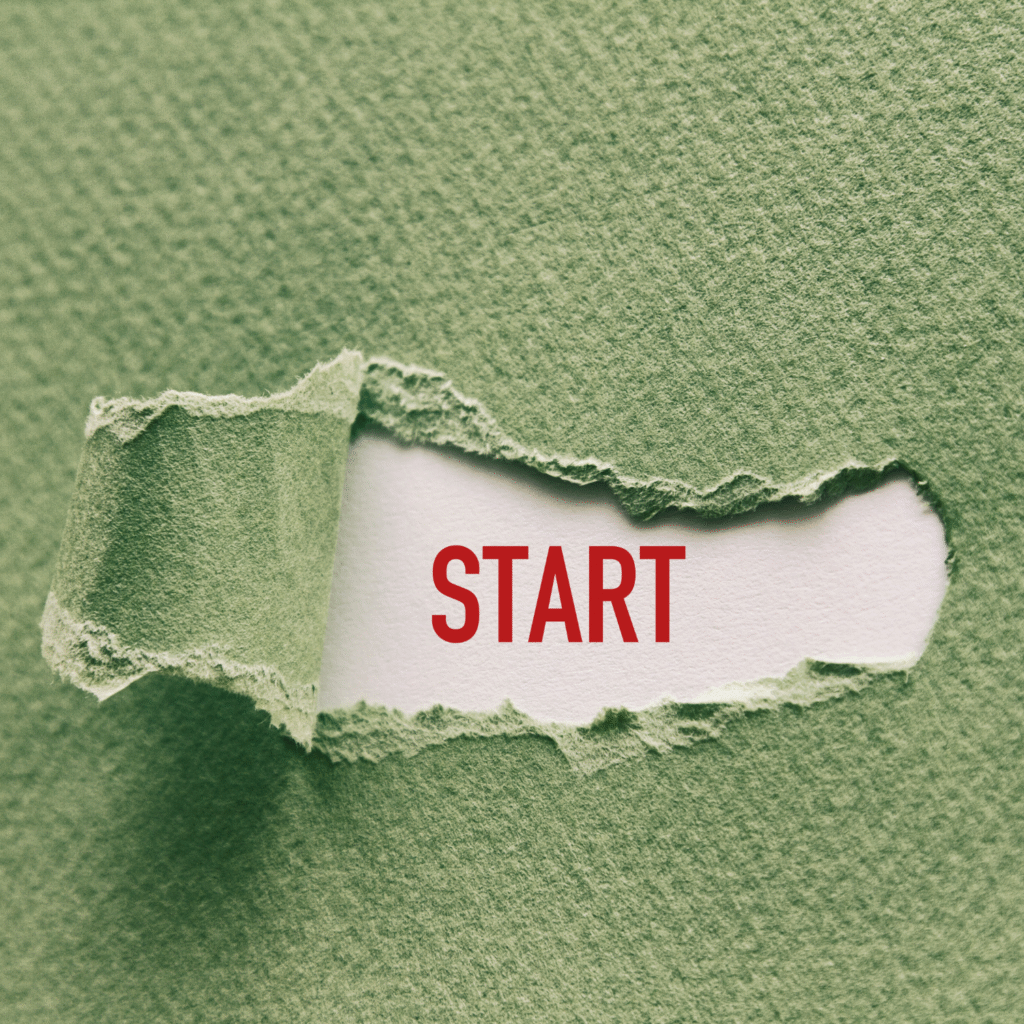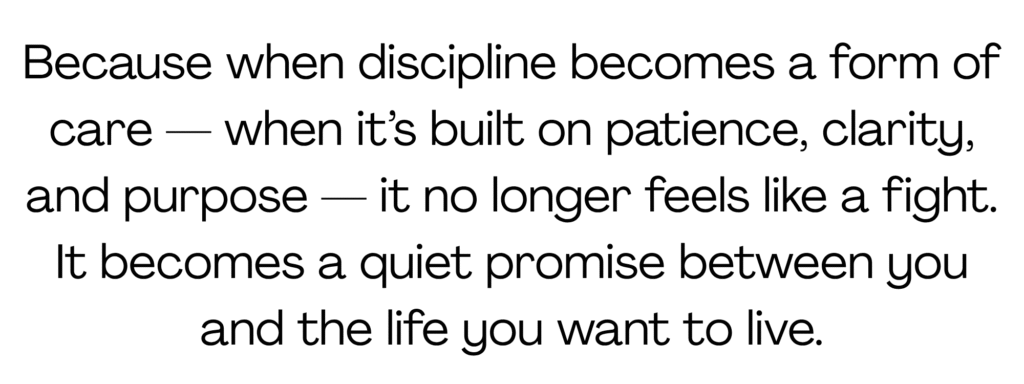We’ve all been there. You set a plan, promise yourself that this time you’ll stay consistent, and start with the best intentions. For a few days, maybe even a few weeks, everything feels fine. You’re doing great — until suddenly you’re not. You miss one day, then another, and soon the guilt sets in. You start thinking, “Why can’t I just be disciplined like other people?”

The truth is — discipline feels hard not because we’re weak, but because we often misunderstand what it really is. We see it as a battle between “strong” and “lazy,” between “productive” and “unmotivated.” But in reality, discipline is not a fight at all. It’s a relationship — one you build with yourself over time. And like all relationships, it requires understanding, patience, and care.
The Misunderstanding About Discipline
When we hear the word discipline, it usually brings to mind something rigid. Early mornings. Strict schedules. No excuses. It’s the image of someone who never slips, never rests, never complains.

But that version of discipline is exhausting — and honestly, unsustainable. Because discipline built on pressure burns out fast. We’re human. We get tired, distracted, and emotional. Life happens. And when it does, our old idea of discipline — the one that depends on constant control — quickly falls apart.
That’s why it feels so hard. Because we’ve been treating discipline like punishment, not like growth. We think we need to push ourselves into doing things we hate, instead of creating systems that support who we want to become.
What if discipline isn’t about control at all? What if it’s about alignment?
Discipline as Alignment, Not Restriction
Real discipline isn’t about forcing yourself into routines you resent. It’s about aligning your actions with your deeper values. It’s saying, “I want this future for myself, and I’m willing to act in a way that supports it.”

When you see discipline through this lens, it stops being about willpower. It becomes about love. Love for your health, your peace, your goals, and your growth.
For example, if your goal is to exercise regularly, it’s not about dragging yourself to the gym out of guilt. It’s about choosing movement because you value strength, energy, and feeling alive. When your why is strong, the how becomes easier.
Discipline, then, is less about perfection and more about consistency. It’s less about avoiding mistakes and more about returning to yourself — again and again — every time you drift off track.
The Emotional Weight Behind “Hard Discipline”
Sometimes, the reason discipline feels heavy has nothing to do with the task itself. It’s the emotions underneath it — guilt, fear, shame, or comparison.
We look at others and think they’re just “naturally disciplined.” But we don’t see the invisible structure of habits, self-talk, and motivation behind their consistency. We assume we’re failing because we lack something they have.
But discipline isn’t about talent. It’s about relationship — the one between your present self and your future self. When that connection is weak, staying consistent feels like forcing yourself to do something for a stranger. But when you care deeply about your future self, discipline feels like an act of care.
You start to think, “I’m doing this for the me I’m becoming.” And that changes everything.
Redefining Discipline: From Force to Flow
Maybe it’s time to redefine what discipline means for you. Because what worked for someone else may not work for your life, your personality, or your pace.
Discipline doesn’t have to mean waking up at 5 a.m. It can mean setting healthy boundaries with your time. It can mean saying no to distractions. It can mean resting when you need to — because rest is also discipline.
The point is to create a rhythm that supports your goals and your well-being. When you move from force to flow, discipline starts feeling natural instead of heavy.

Try this shift:
- Instead of saying, “I have to,” say, “I choose to.”
- Instead of, “I failed again,” say, “I learned something about my patterns.”
- Instead of, “I need more willpower,” say, “I need more clarity on what matters most.”
These small shifts transform discipline from something you dread into something that feels empowering.
How to Build Gentle Discipline
If discipline has always felt like a struggle, maybe you need to build it differently this time — gently. Here’s what that looks like in practice:
1. Start small.
Discipline thrives on momentum. Choose one small thing to stay consistent with. It could be journaling for five minutes a day, stretching every morning, or cleaning your space for ten minutes. When you keep one small promise, you prove to yourself that you can.

2. Focus on identity, not outcome.
Instead of “I want to be fit,” say, “I’m becoming someone who cares for their body.” Discipline sticks when it’s tied to who you want to be — not just what you want to achieve.

3. Remove the guilt.
Missing a day doesn’t mean you’ve failed. The people you admire for their discipline? They’ve missed days too. The difference is, they returned to the path faster — without punishing themselves for slipping.

The Real Secret: Discipline is a Kind of Kindness
We often think being kind to ourselves means being lenient. But kindness also means accountability. It means doing what’s best for your long-term well-being, even when your short-term comfort protests.

So maybe discipline feels hard not because you’re doing it wrong — but because you’ve been doing it without compassion. You’ve been trying to control yourself instead of understanding yourself.
When you bring compassion into discipline, it softens. You no longer push yourself out of fear — you guide yourself out of love. You no longer dread the process — you trust it.
And that’s when the magic happens.
“True discipline is not about force. It’s about remembering what you really want — and treating yourself like someone worth showing up for.”
Final Reflection
Maybe the real question isn’t “Why is discipline so hard?” but “How can I make discipline feel like love?”

And that’s the kind of discipline that lasts — not because it’s perfect, but because it’s real.





